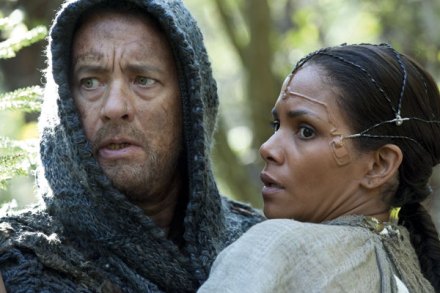Only disconnect
Cloud Atlas is part-sci-fi, part-thriller, part-romance, part-comedy, part-action flick, part-this, part-that and it all adds up to? A whole lot of not very much. Based on David Mitchell’s novel, this strains, laboriously, to capture that novel’s scope and complexity, but gets nowhere near, and takes three hours to get nowhere near. (If you are going to take three hours, you can’t get somewhere, at least? Is that too much to ask?) Its problem isn’t lack of ambition. This cost $100 million, had three directors and stars multiple A-listers in multiple roles in multiple storylines. These A-listers include Tom Hanks, Halle Berry, Susan Sarandon, Jim Broadbent, Jim Sturgess, Ben Whishaw and











